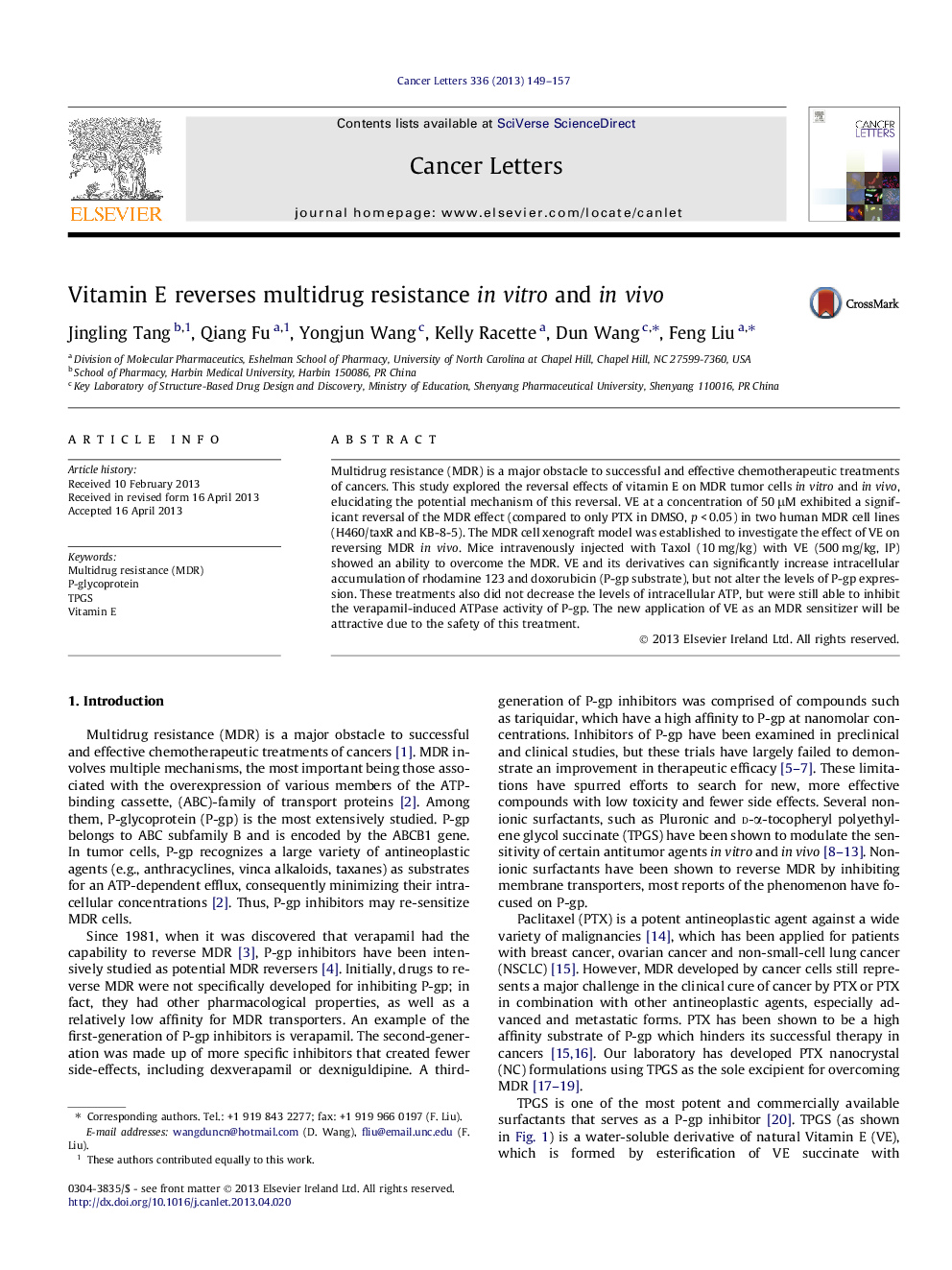| Article ID | Journal | Published Year | Pages | File Type |
|---|---|---|---|---|
| 2112816 | Cancer Letters | 2013 | 9 Pages |
Multidrug resistance (MDR) is a major obstacle to successful and effective chemotherapeutic treatments of cancers. This study explored the reversal effects of vitamin E on MDR tumor cells in vitro and in vivo, elucidating the potential mechanism of this reversal. VE at a concentration of 50 μM exhibited a significant reversal of the MDR effect (compared to only PTX in DMSO, p < 0.05) in two human MDR cell lines (H460/taxR and KB-8-5). The MDR cell xenograft model was established to investigate the effect of VE on reversing MDR in vivo. Mice intravenously injected with Taxol (10 mg/kg) with VE (500 mg/kg, IP) showed an ability to overcome the MDR. VE and its derivatives can significantly increase intracellular accumulation of rhodamine 123 and doxorubicin (P-gp substrate), but not alter the levels of P-gp expression. These treatments also did not decrease the levels of intracellular ATP, but were still able to inhibit the verapamil-induced ATPase activity of P-gp. The new application of VE as an MDR sensitizer will be attractive due to the safety of this treatment.
